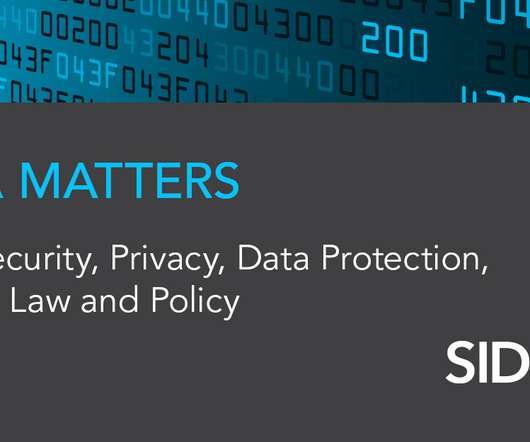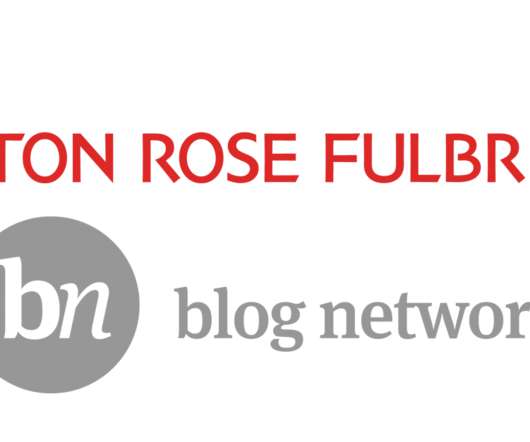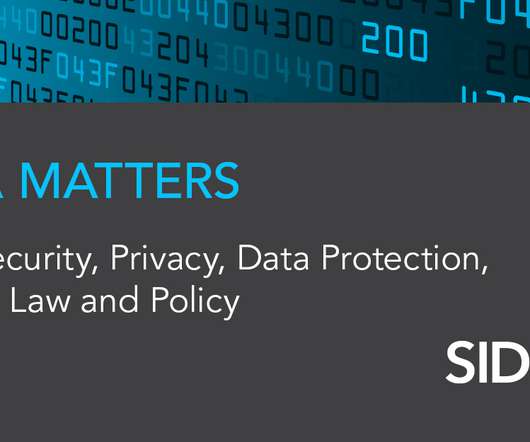Draft Bill Imposes Steep Penalties, Expands FTC’s Authority to Regulate Privacy
Hunton Privacy
NOVEMBER 2, 2018
Additionally, like the EU General Data Protection Regulation, the draft bill proposes a maximum fine of 4% of total annual gross revenue for companies that are found to be in violation of Section 5 of the FTC Act.
























Let's personalize your content